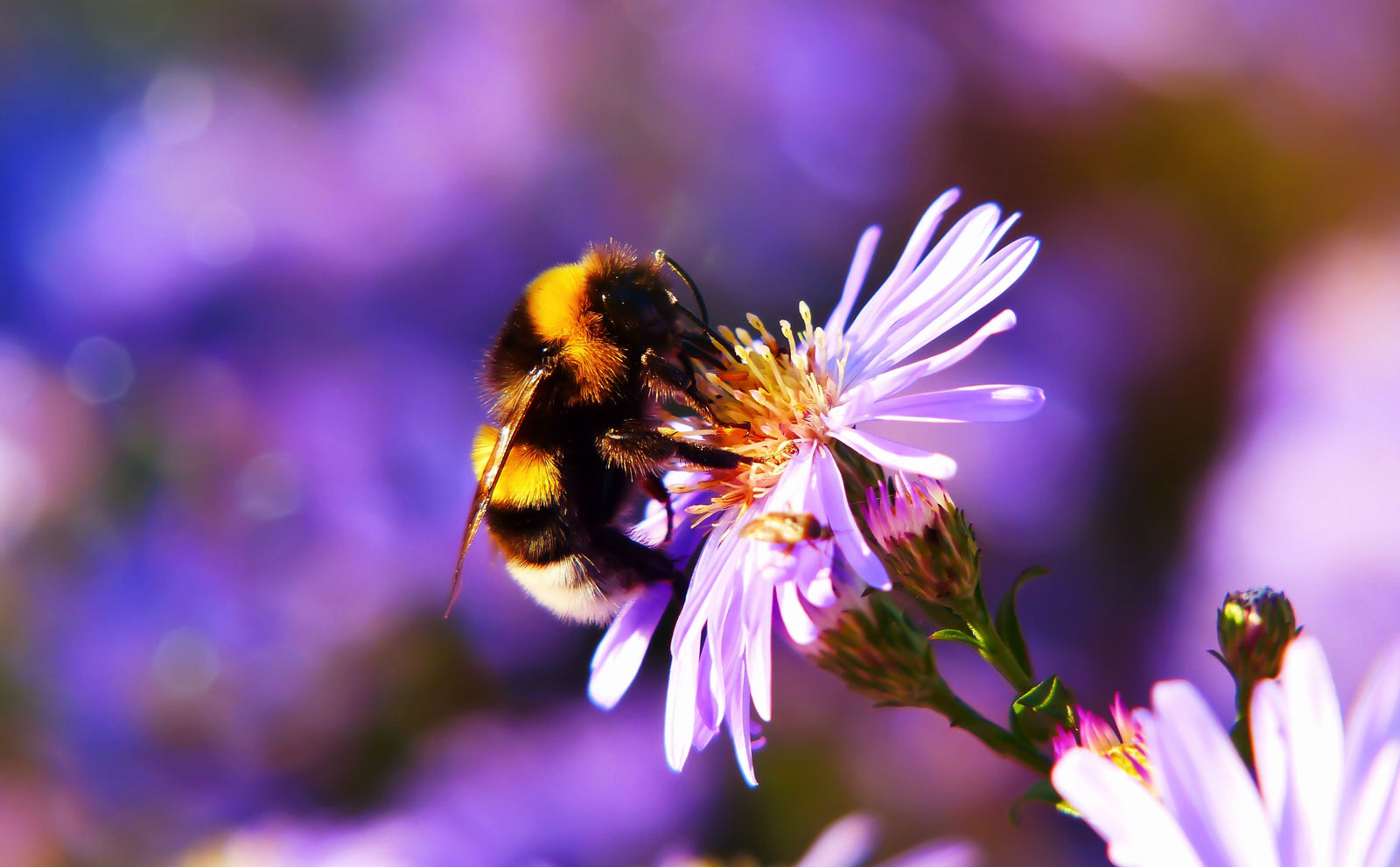How important are the bees? Can we live without them?

The way the world is majestically created is something of great architectural and original designs. We tend to overlook the beauty of what’s natural and freely given to us. Nature when preserved can provide adventures and serenity to anyone. These diverse experiences cannot be fulfilled without realizing the importance of every living plant and animal. It must be recognized that even the smallest creatures of nature serves a purpose that is necessary to sustain the human life. One of those tiny and hard-working insects that perform a great duty is the buzzing bee. If you just think "stinging" when you think about bees, then you are probably not fully aware of the breadth and depth of bees around the world. Bees are influential to the existence of humans and all living things by the simple (as it may seem) task they carry out.
We all know that bees are pollinating insects and they provide us with that sweet nectar of life. They are hard-working and very busy. But, what is over-looked is the reason behind pollination. Pollination is the process by which pollen grains from an anther, the male portion of a flower, are transferred to a female part in the flower, known as the stigma. This process leads to the creation of new seeds that grow into new plants. Now some may argue that pollination can also occur by wind but if you truly understand the need for more plants in the environment you will comprehend the urgency for this scientific mechanism to take place by any means necessary.
There are around 25,000 species of bees worldwide! These 25,000 species can be divided into over 4000 genera (types of bees) and belonging within 9 groups or 'families', all under the banner - or 'Super-family' - 'Apoidea. It is estimated that one third of the food that we consume each day relies on pollination mainly by bees'. Many species of wild plants depend on insect pollinators as well. Bees are responsible for the production of many seeds, nuts, berries, and fruit, which serve as a vital food source for wild animals.
Globally there are more honey bees than other types of bee and pollinating insects, so it is the world’s most important pollinator of food crops. Bees produce honey to feed their colonies during the cold winter months. Honey is also known as a natural home remedy for hair and skin treatment. Raw honey contains an array of plant chemicals that act as antioxidants. Some types of honey have as many antioxidants as fruits and vegetables. Research shows that antioxidant compounds in honey called polyphenols may play a role in preventing heart disease. Drinking honey in the morning helps in relieving morning sickness and also can eradicate the common flu and sore throat when mixed with salt and lime. Humans have harvested honey for thousands of years, but we aren’t the only ones who consider it a sweet snack. Birds, raccoons, opossums, and insects will raid beehives for a taste of nutritious honey (and bee larvae).
A food chain represents a series of events and consumption in which food and energy are consumed from one organism in an ecosystem to another. Food chains show how energy is passed from the sun to producers, from producers to consumers, and from consumers to decompose. Bees obviously are also a part of the food chain. At least 24 species of bird, including the blackbird, ruby-throated hummingbird, and starling, prey on bees. Many spiders and insects, like dragonflies and praying mantises, eat bees as well.
Honeybees live in colonies (groups) called hives, containing one queen bee, thousands of female worker bees, and hundreds of male drone bees. The worker bees build the nest, look after the young bee grubs, and search for food. Inside the hive, the bees build hexagonal (six-sided) cells from wax. Bees are known for their elaborate hives, but they also help build homes for millions of other insects and animals. Their role as pollinators is vital in the growth of nature at large. They help in the growth of tropical forests, savannah woodlands, and temperate deciduous forests. Many tree species, like willows and poplars, couldn’t grow without pollinators like bees. Even your own garden serves as a home for hundreds of tiny creatures, from birds and squirrels to thousands of tiny insects. If bees disappeared, the animals that depend on these plants for survival would vanish as well.
Even though this article focuses mainly on honey bees, it is a mammoth assignment to really research and present the value of each of these unique species. There is no doubting of the importance of bees to our food supply. Without them, our gardens would be bare and our plates empty. But we should also remember the other reasons bees are important to the environment. They provide homes for many, work to produce honey which benefits us in many ways and so many other ways humans, plants and animals gain from them. We should urgently bring about the awareness these beautiful insects require. In whatever small way we can all help, we should. Whether it’s having a plant /plants or protecting them, wearing an artifact to encourage the discussion of their significance or even educating the younger ones about them. Bees are the true providers of the wonders of nature that we so love!








Leave a comment